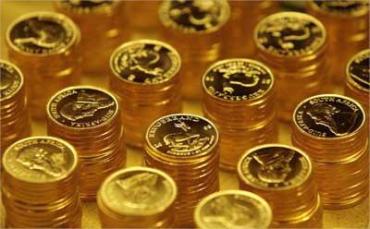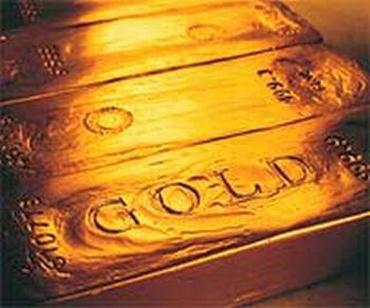
For us Indians, gold is a symbol of purity, prosperity and opulence. However, globally, gold normally trades like a commodity -- the most precious commodity. Not only is it universally accepted, it is also considered as safe haven in times of economic turbulence and an effective inflation-hedge.
Why gold prices have been shooting up?
Though gold prices have been softening in the last couple of weeks in the past decade (as indicated in the chart below), gold has appreciated around seven-fold in value. Global gold prices are decided not only by supply and demand factors, but also by the global economic outlook.
When investors lose confidence in currencies, stock markets, and the overall economy, they turn to gold.
Let's look at the current economic situation.
After US and PIGS (Portugal, Italy, Greece and Spain) countries, Hungary is also showing signs of debt crisis. The sentiment among the world's stock markets is low with fears of further break down in the Euro and serious doubts being raised on other countries with high levels of public debt.
Faltering economic situations like these will eventually turn inflationary (leading to increase in prices) as central banks continue to print money to create artificial demand and/or monetise their debt.
Adding to this, the recovery that many were talking about in the United States is clearly on life support, that is, on the back of stimulus programmes, which cannot sustain for long unless there is real growth in the US economy (contributed by US domestic consumer spending).
All in all, signs of risk aversion are back (from 2008) and now it's all about capital protection.
Gold, due to its universal acceptance, is considered the best respite during election uncertainties, war fears, and economic instability. So in other words, it is also the world's economic health thermometer -- and when this 'thermometer' is high -- it means the world may be in for another or worse financial condition.

Click NEXT to read what you should do now

Investors around the world are sensing a high probability of another global meltdown. Each one has their own reasoning of the current financial turmoil -- fears of debt spreading to other countries, fiscal tightening, inflation and liquidity crisis, etc.
And in such a case, gold being the safest haven seems to be the only logical place to be.
What to do now?
However, amidst all this madness, what should an individual investor like you and me do? Should we buy more gold expecting further increase in its price? Or should we sell and make a killing? Or hang on, wait and see how the world situation unfolds?
No doubt gold is a reliable asset class and the current price level only adds to the importance of including it in our portfolio. In the days ahead, gold will continue to give attractive returns for a long time -- on the back of further economy and currency debacles, and inflationary pressures. There may be setbacks in gold's price along the way. This should be seen as a buying opportunity (There are many ways in which one can invest in gold. Much about it in the 3rd slide). It would be wise to invest systematically and at dips.
However, don't get carried away by its glitter. Gold's purpose in your portfolio should not be as an investment but an effective tool to counter inflation. The allocation can be up to 15 per cent of your total portfolio (as a hedge against globally lingering uncertainty, financial crisis and inflationary prospects); it can be apart from the jewellery that one holds for self or gifting purposes.
Click NEXT to read how to invest in gold

Many ways to invest in the yellow metal:
Investment avenues:
Physical gold: You get to use jewellery, but its purity, storage, making charges pose problems. Higher tax on profits from sale.
Gold jewellery: It is one of the oldest forms of investment which also has some amount of pride and honour attached in the hearts of Indian families. It is something you can use and enjoy and at the same time it keeps appreciating in value.
Gold bars and coins: Gold bars and coins are quite popular not only as an investment but also as a gift. Physical storage is a pain as one may invariably need to incur extra cost in renting a bank locker and/or insuring your possession.
Moreover you also need to be careful about adulterated and fake ones. There is also a substantial difference between buy and sell rate of gold coins and bars.
Gold electronically traded funds (ETFs): More popularly known as ETFs. They are a type of mutual fund schemes that invest the money collected from investors in standard gold bullion (0.995 purity). The investor's holding is denoted in units (usually 1 gram of gold is considered as 1 unit) which is listed on the stock exchanges (such as Sensex and Nifty), just like a share.
The price is expressed as NAV (Net asset value) which represents the price of one unit (equivalent to 1 gram gold) on that particular day.
ETFs offer many advantages such as no purity/storage issues, high liquidity, lower tax on profits than physical gold/metals and ease of investment.
Gold futures: Relatively new to Indian investors; requires high risk -- can make or break fortunes; Currently not a retail investor's cup of tea.
Gold mutual funds: Invest in companies involved in gold mining and production; same as ETFs with respect to liquidity and taxation.